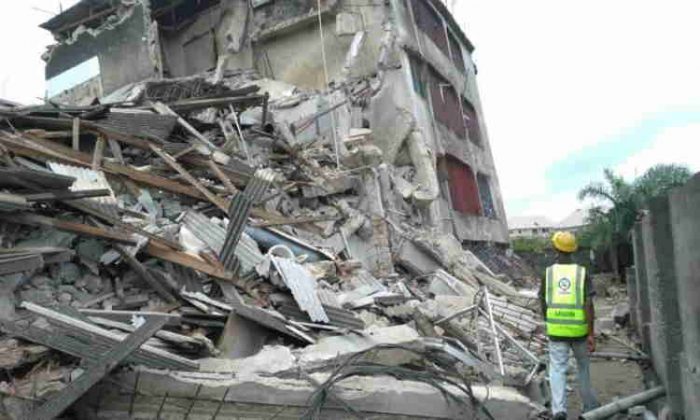Experts in the built environment have asked government at all levels to consider urban renewal as a major step in curbing the problem of building collapse in the country.
They stated that the problem of building collapse was shameful for a country like Nigeria.
They noted that the government had been encouraging slum development and in turn, building collapse by failing to invest in urban regeneration.
Urban renewal, they explained, entailed clearing out of blighted areas to rebuild slums and create opportunities for higherclass housing.
The President, Architects Registration Council of Nigeria, Sir Dipo Ajayi, said government’s lack of willpower had encouraged slums and compounded environmental challenges.
He cited Ita Faji as an example of the government’s inability to enforce appropriate laws.
“When it comes to building collapse, the government is guilty by 80 per cent. If you go to Ifa Faji and the environ, some of the buildings there were made with brick and mortar and people still lease and build on those houses, some of which are as old as 100 years,” he said.
He said the government should meet with relevant stakeholders and agree that such areas across the state should be demolished and rebuilt.
“The entrance into Lagos is an eyesore like many other places in the city. Jakande in Lekki, for instance, should not be there again. The government has the power to make these things happen and if it is not doing it, then it is culpable,” he added.
Ajayi and other stakeholders spoke at a meeting conveyed by the Lagos State Emergency Management Agency to find solutions to the problem of building collapse in the state.
The Building Collapse Prevention Guild, an advocacy group of building construction professionals, had recently revealed that 36,000 potential collapses were waiting to happen in Lagos alone.
The President of the BCPG, Mr Akinola George, said this was because many of the buildings in Lagos State were old and not constructed by the people who are properly trained to do so.
“A survey revealed that over 45,000 sites existed at a time in Lagos State; 20 per cent of this figure translates to 9,000. Hence by deduction, quacks and other faceless characters by whatever names called are responsible for the remaining 80 per cent. A whooping 36,000 potential collapses are waiting to happen,” he had stated.
The Lagos Chapter Chairman of the BCPG, Adeyinka Ogunseye, who was present at the meeting, said the government should urgently address the problem of distressed buildings.
“They have to be enumerated and dealt with immediately. Look at the collapse in Ita Faji, the building was marked for demolition but nothing was done. The government needs to act fast when it gets sufficient information about such buildings,” he said.
“The government should also make sure it is able to regulate developers and their activities; everybody is now building houses without having the requisite experience.

“We are not saying people who have money should not build but let them employ people who are really qualified to build houses so that building collapse can be reduced,” he added.
Above all, he said the issue of some highly-placed Nigerians violating construction laws due to their position in the society should be addressed.
“The government must be able to avert what we call ‘untouchables’. In other climes, if you are doing what is wrong no matter who you are, the law will come after you. But over here, we have people who circumvent the law and nothing happens,” he added.
A builder, Mrs Modupe Ogunbanjo, noted that enlightening the masses would have a lasting effect as part of efforts towards eradicating building collapse.
“To an extent, the mentality of the people is part of the problem. Enlightening people, especially those in areas prone to collapse will be a right step in the right direction. Again, we have the issue of quality building materials, the government needs to understand the essence of controlling these things,” she said.
Source: punchng





